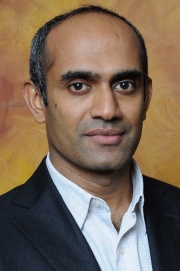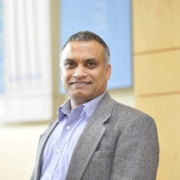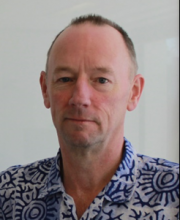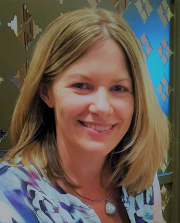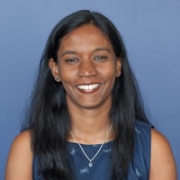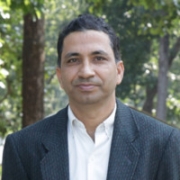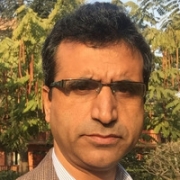Shifts and disruptions to daily life, such as COVID-19, climate change and urbanisations, are creating new, uncertain contexts for development contexts. Our work on Reimagining Development is exploring what it means to change the way we 'do' development, what a changing landscape for justice and inequality means for practice, and how pathways of funding and localising development approaches can be strengthened. Most importantly, this work highlights that rethinking development is insufficient but rather, we need to approach this work by reimagining development futures.
In this paper, Dr George Varughese argues that the disruptions and shifts in development contexts of the 21st century are substantial enough to require a reimagining of disciplinary referents, signifiers, and orientations while supporting activities that (re)insert deeply contextual and practical knowledge to reframe the discourse and the practice of development.
About Dr George Varughese
George Varughese is a development practitioner and political scientist with substantive interest in governance and public policy. He serves as Senior Strategic Advisor for Niti Foundation, a Nepali non-profit organization that supports locally led public policy reform. He is also an Associate of the Institute for Global Development, University of New South Wales, where he leads a research to practice theme on reimagining development. In addition to extensive experience in Afghanistan and Nepal, he has familiarity with Madagascar, Myanmar, Sri Lanka, and Timor Leste.
The second paper in this series, authored by Professor Bernardo Michael, reflects upon how the work of historians can provide lessons for development practitioners on how to be more critical of their own starting points, assumptions, and expectations.
About Professor Bernardo Michael
Bernardo Michael is a historian of modern South Asia and is Professor of History and Co-Chair, Department of History at Messiah University. His research focuses on the relationship between Nepali state formation, British colonialism, and territorial reordering on the subcontinent.
Professor Chris Roche and Dr Lisa Denney draw on emerging research from the Pacific to explore the ways in which localization/locally led development, conditioned in uncertain and ambiguous contexts, shapes new approaches to development practice.
About Professor Chris Roche
Chris Roche is a development practitioner and is Professor of Development Practice at La Trobe University where he is also the Director of the Institute for Human Security and Social Change. He is also the Deputy Director (Impact) of the Developmental Leadership Program. His research is focused on the role of civil society and citizens in the promotion of progressive social change, and how such actors can be best supported.
About Dr Lisa Denney
Lisa Denney is an Australia-based researcher with extensive experience working in sub-Saharan Africa, Southeast Asia and the Pacific. She is a Senior Research Fellow with the Institute for Human Security and Social Change at La Trobe University. Her research is focused on issues of justice, security and governance in post-conflict and transitioning contexts.
The fourth paper by Dr Dinesha Samararatne analyzes experiences in public participation in constitution-making in Nepal, Myanmar and Sri Lanka to suggest six dimensions that must be taken into account in developing and implementing programs for public participation whether in development initiatives, policy-development, law reform or constitution-making.
About Dr Dinesha Samararatne
Dinesha Samararatne is a comparative constitutional lawyer and is a Senior Lecturer at the Department of Public & International Law, University of Colombo. Her recent research work has been in relation to public participation in constitution-making, judicial enforcement of economic and social rights, judicial interpretation of fundamental rights, the influence of Indian public law in the development of public law in Sri Lanka, and access to justice.
In this final paper, Dr Mani Ram Banjade and Dr Hemant Ojha review, from the perspective of knowledge politics, action-based learning, and deliberation, a set of experimental, successful practitioner initiatives in Nepal that seek to develop strategies and methods to improve the knowledge interface and policy learning in development contexts.
About Dr Mani Ram Banjade
Mani Banjade is a development practitioner and the Principal and Managing Director of NIMS College, Kathmandu. His research focuses on critical policy analysis, forest tenure reforms, governance, democratization and inclusion, social learning and innovation, community-based natural resource management, and participatory action research.
About Dr Hemant Ojha
Hemant Ojha is a socio-environmental specialist and public policy analyst. He is an Associate Professor at the Institute for Governance & Policy Analysis, University of Canberra and the director of the Institute for Study and Development Worldwide (IFSD). His research tackles questions of governance, planning, system innovation and transformation, and the science-policy-practice interface for improving justice, resilience, and sustainability in the rapidly changing world.
These papers are part of the IGD's work on Reimagining Development led by Dr George Varughese. Dr. George Varughese is a Research to Practice Associate with the UNSW Institute for Global Development and Senior Strategic Advisor at Niti Foundation, a Nepali not-for-profit public interest organization that supports locally-led policy reform.
For questions about this work, please contact him at igd@unsw.edu.au.
